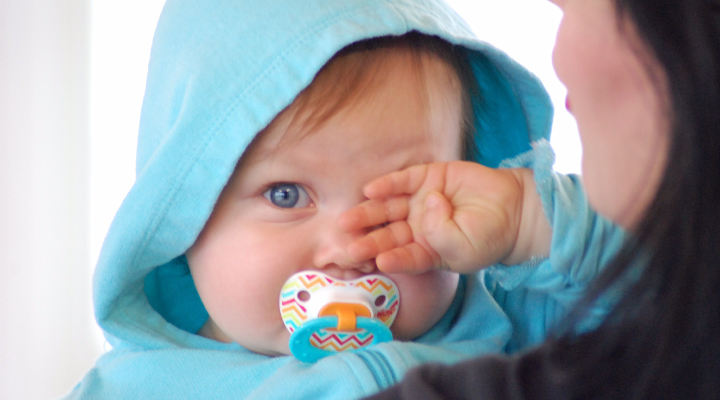
The pacifier can be a parent’s best friend and a terrible nightmare. While it’s great for calming upset babies—and helping tired parents get a little sleep—some kids have a hard time giving pacifiers up when they get older, which can be a problem for developing teeth.
Using pacifiers for the first year or two won’t hurt anyone. As your child develops a full set of teeth, however, sucking can impact teeth’s positioning. This is especially true if your child is still using a pacifier by the time permanent teeth come in, which can happen as early as 5 years old.
The Three-Day Plan
On the first day, tell the child that, as a big boy or girl, it’s time to get rid of the pacifier. Repeat the message several times on days one and two. Be firm and matter-of-fact. On day three, devise a scavenger hunt to find all of the binkies in the house. Even if your child protests, be firm and round up the pacifiers. Then, leave them on the front step for the “recycling truck” to pick up.
The Gradual Approach
Start by removing the pacifier during stress-free situations, like at home during playtime. Then, introduce a new rule: Pacifiers don’t leave the house. After that becomes a habit, limit pacifier use in the crib or bed only. Finally, eliminate pacifiers at bedtime. The last step will likely be the hardest, and there’s nothing wrong with resorting to a little bribery for something else they want.
The Pacifier Fairy
Turn the situation into a rite of passage. Tell your child that they’ve graduated to big kid status and the Pacifier Fairy is coming to give their binkies to new babies who need them (children like to think they’re helping others). In return, the Pacifier Fairy will bring a big kid toy.
Whatever method you choose, you may still be in for a few rough nights. But there’s good news: According to Mark Brenner, author of Pacifiers, Blankets, Bottles, & Thumbs: What Every Parent Should Know About Starting and Stopping, it takes most kids less than 48 hours to get over it.